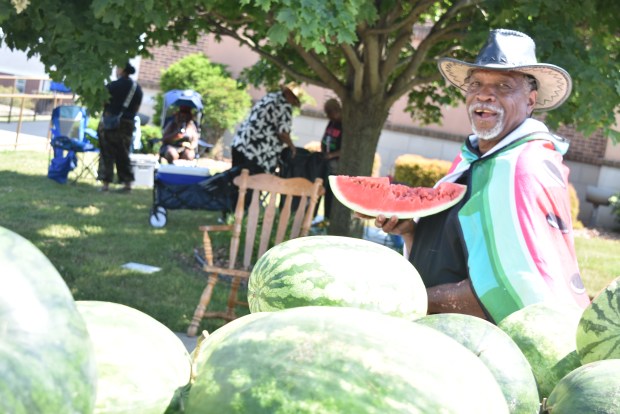When Waukegan was named one of 13 locations in Illinois to receive a $5 million grant as a CEJA Workforce Hub focusing on green energy jobs, Lake County Workforce Development and the College of Lake County began working together to seek the funds.
From the beginning, Jennifer Serino, Workforce Development’s executive director, said the two organizations intended the effort to be a collaborative one. After the initial application was submitted last fall, she said CEJA wanted even more collaboration.
“A lot has happened since we started looking at opportunities,” she said. “The feedback we got was we needed a stronger partnership. We started reaching out to potential partners.”
Workforce Development and the College of Lake County are working with a variety of potential partners to develop a team to collaborate to obtain the $5 million grant and bring clean energy jobs to Waukegan and Lake County.
Part of Gov. J.B. Pritzker’s goal of making all energy generated in Illinois by 2050 come from renewable sources, the program is starting in places like Waukegan which have suffered environmentally or economically.
Hilary Scott-Ogunrinde, the deputy director of the state’s Office of Energy and Utility in the Illinois Department of Commerce and Economic Opportunity (DCEO), said in August Waukegan easily qualifies with five Superfund sites and a school district where 68% of the families are at or below the poverty level.
Serino said she contacted groups like Community Works and YCC in Waukegan, as well as YouthBuild in North Chicago, Lake County Partners and others. It is more of a community-centric approach involving groups in direct touch with potential job seekers
“There are groups who procure the individuals from the community who are candidates for green jobs,” she said. “These community-based organizations are out there right now. Once they come to us, we help (the candidates) with their job applications.”
Lindsey Nemcek, the public relations manager for the College of Lake County, said the school is continuing to work on the project. Richard Ammon, the college’s interim vice president of education and chief academic officer, said in August that CLC is a natural partner.
“Looking at the grant requirements, CLC is uniquely qualified to apply for the opportunity to provide education and support services,” Ammon said at that time. “We’re excited to leverage the college’s technical expertise to invest in our communities.”
Kevin Considine, the president and CEO of Lake County Partners, said the green energy job grant program is a natural for people in Lake County, particularly those who seek work as HVAC technicians.
“It doesn’t take a college degree, and it is a good career,” he said.
Jennifer Yonan, the executive director of YCC, said the organization works with young people between the ages of 16 and 24 to help them with their education and develop job skills in both technology and the trades.
“We help youth with basic training, and will be able to help with the bridge training for clean energy jobs,” she said. “Clean energy is more specialized with solar panels and HVAC. We’re very excited to be part of it.”
Yvette Ewing, the co-founder of Community Works, said one of the organization’s goals is reaching the underserved in the area to help them acquire the necessary skills to land a well-paying job to give a family a good life.
“We prepare them to go to Workforce Development,” she said. “We work with kids and adults as well. We give them an opportunity for on-the-job training.”
Eliza Glezer, the assistant deputy director for communications for DCEO, said in an email no funding for any of the grants has been announced and the DCEO, which oversees CEJA, offers input to applicants.
“All applicants are given the opportunity to meet with DCEO representatives to receive feedback on their applications,” she said in the email.
Other communities selected as potential hubs are Aurora, Chicago’s South Side, Chicago’s West and Southwest sides, Rockford, Joliet, Alton, Carbondale, Champaign, Danville, Decatur, East St. Louis and Peoria.




